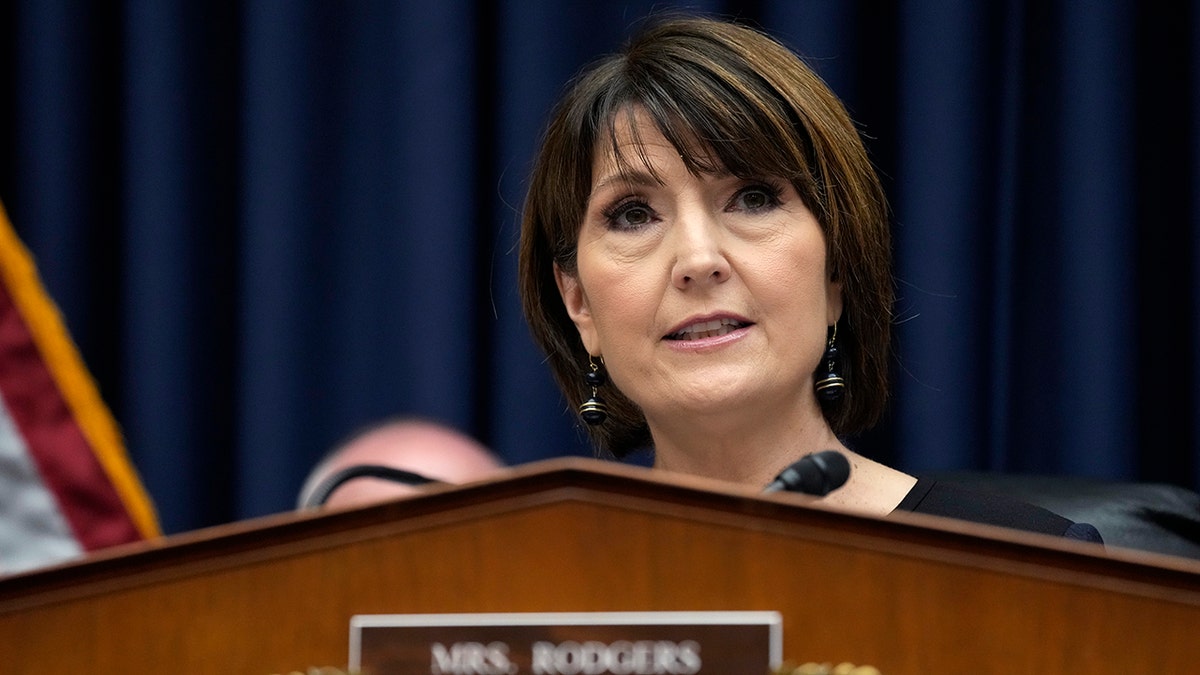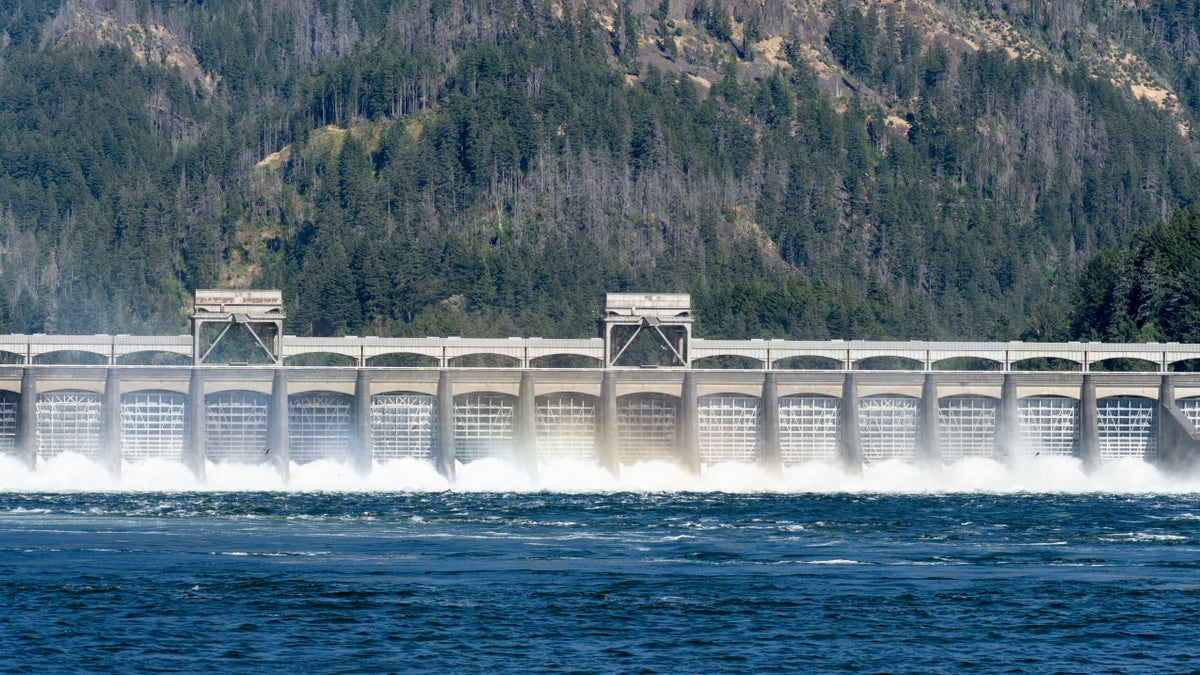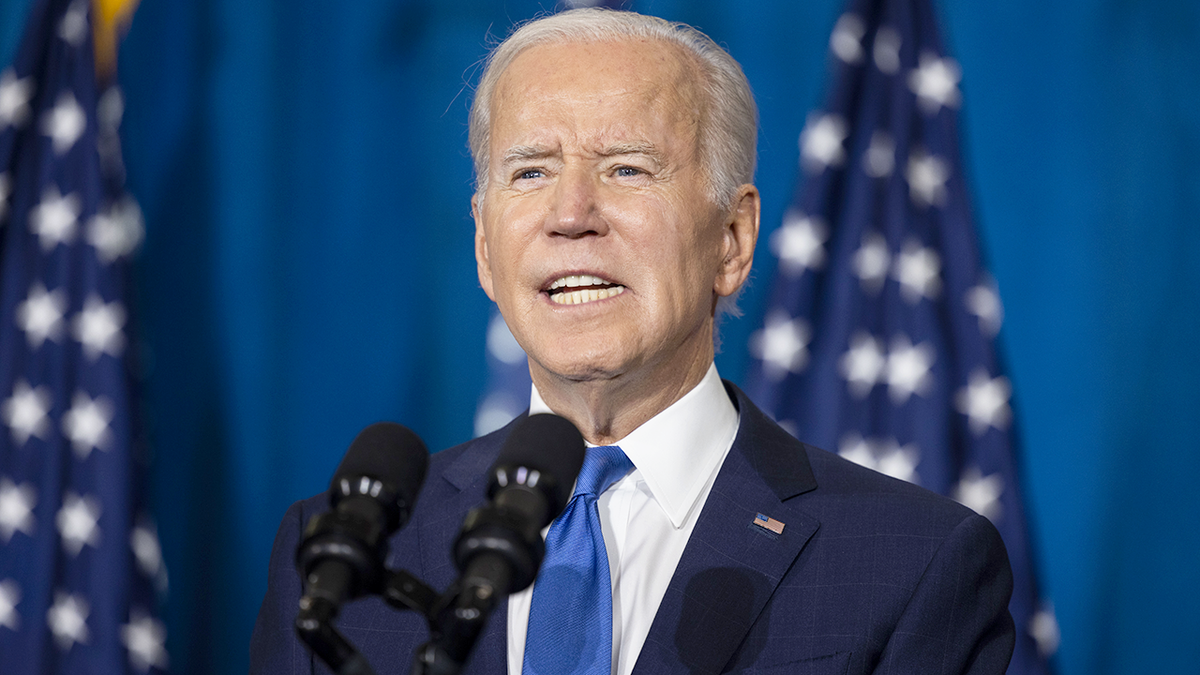Marc Morano: Biden's green energy agenda is in complete collapse
'The Green Fraud' author Marc Morano joins 'Jesse Watters Primetime' to discuss the collapsing green industry.
A group of House lawmakers representing the Pacific Northwest made public a court-approved confidential mediation between the Biden administration and environmental groups pushing to remove four hydroelectric dams in Washington to protect salmon.
The document, which until now hasn't been made public, was drafted on Nov. 2 as part of an agreement in which activist groups agreed to pause their litigation against the federal government. The groups have argued in favor of breaching the four federally-managed dams amid declining salmon populations in the lower Snake River, which winds through Idaho and Washington before feeding into the Columbia River and then into the Pacific Ocean.
"It is imperative that our constituents, whose livelihoods depend on the Columbia River System, have a comprehensive understanding of this document’s contents so they can anticipate and prepare for the wide-ranging impacts that will inevitably be felt across the region should the commitments detailed in this document be realized," the lawmakers, led by Rep. Cathy McMorris Rodgers, R-Wash., wrote to President Biden on Wednesday.
"Additionally, as Members of Congress representing the Pacific Northwest and tasked with oversight of the Executive Branch, it is our duty to ensure any actions committed to as part of this agreement do not circumvent by any means the congressional authorization that would be required to execute certain proposed provisions, such as the removal of certain dams," they continued.

Rep. Cathy McMorris Rodgers, R-Wash., who chairs the Energy and Commerce Committee, led the letter to President Biden on Wednesday, revealing the confidential mediation. (AP Photo/Alex Brandon)
In the letter — which included the confidential mediation document the lawmakers recently obtained — Rodgers, who chairs the House Energy and Commerce Committee, and Reps. Dan Newhouse, R-Wash.; Cliff Bentz, R-Ore.; and Russ Fulcher, R-Idaho, asked a series of questions about the Biden administration's intentions with the agreement.
For example, the mediation states "the science is clear, and now so must be our path forward." The lawmakers questioned what exactly "the science" was and which scientific reports the federal government has used to come to its conclusions.
"We agree that business as usual — and the consequential disappearance of salmon and other native fish populations in the Columbia River Basin — is unacceptable," the mediation states. "And while there is still time to save these fish, there is no time to waste."
It further notes that Democratic Washington Gov. Jay Inslee and Sen. Patty Murray, D-Wash., released recommendations last year to quickly deploy green energy in the region to account for lost power were the four dams to be torn down. The document later notes the region must account for power to replace energy services currently provided by the dams.
In recent years, multiple government and private reports have determined that breaching the dams would have a dramatic negative impact on energy production, climate goals and transportation in Washington.

A U.S. Army Corps of Engineers dam is shown in the Columbia River system in Washington state. (Marli Miller/UCG/Universal Images Group via Getty Images)
The dams were constructed in the 1960s and 1970s by the U.S. Army Corps of Engineers primarily to ensure the Snake River was passable for barge transportation. However, since then, the main benefit has been their reliable clean energy output. They still provide about 8% of the state's electricity, enough to serve millions of residents, and have a large total capacity of 3,000 megawatts.
Removing the dams would also likely chip away at U.S. climate goals since their energy production would likely need to be replaced by fossil fuel alternatives. According to federal data, replacing hydropower generated by the dams with natural gas generation would increase carbon emissions by up to 2.6 million metric tons per year, the equivalent of 421,000 passenger cars.
INTERNAL DOCS SHOW BIDEN ADMIN WAIVED TAXPAYER SAFEGUARDS TO BOOST OFFSHORE WIND PROJECT
"Our organizations have repeatedly looked for ways to find common ground with the plaintiffs’ concerns during the mediation process, submitting numerous inputs, documents, and studies," said the executive directors of Northwest RiverPartners, the Public Power Council, and the Pacific Northwest Waterways Association, which collectively represent power utilities, ports, agriculture companies and other businesses dependent on the dams.
"Instead of working with all interests, the U.S. Government chose for months to hold secret negotiations and refused to share any details with us, let alone allow our participation," they continued. "It is not surprising, then, that this proposal turns its back on over three million electricity customers as well as the farming, transportation, navigation, and economic needs of the region. By purposely excluding our respective organizations from the negotiations, literally millions of Northwest residents were deprived of fair representation in this process."
According to Northwest RiverPartners, the mediation document goes "well beyond creating a roadmap for breaching the lower Snake River dams, establishing a plan that could demolish the capabilities of the entire Federal Columbia River Power System."

President Biden said in March he would work with proponents of breaching — Indigenous tribes; Sens. Patty Murray, D-Wash., and Maria Cantwell, D-Wash.; and Rep. Mike Simpson, R-Idaho — to "bring healthy and abundant salmon runs back" to the Columbia River system. (Jim Lo Scalzo/EPA/Bloomberg via Getty Images)
In addition to the impacts on energy and climate ambitions, industry groups have argued that removing the four Snake River dams would disrupt the economy and harm agriculture exports. The river system notably feeds the largest U.S. wheat export gateway.
Aided by the dams, barges traveling along the Columbia River system carry about 60% of Washington's annual wheat exports and a staggering 40% of the nation's total wheat production.
In a statement to Fox News Digital on Wednesday, Earthjustice, one of the plaintiffs involved in the case and mediation, said it couldn't comment on the documents made public earlier in the day.
"Unless we hear differently from the Federal Mediation and Conciliation Services, it remains against the rules for us to share anything in this DRAFT & CONFIDENTIAL document," Earthjustice spokesperson Elizabeth Manning said.
CLICK HERE TO GET THE FOX NEWS APP
"So no, we cannot comment on the agreement," she added. "Again, this is customary in mediation, and all parties to this litigation — including plaintiffs, defendants and all intervening parties — are bound by the same confidentiality rules."
According to court filings, the parties involved in the case may request a multiyear pause on litigation to allow for the implementation of the package as soon as Dec. 15.
The White House Council on Environmental Quality didn't respond to a request for comment.















































